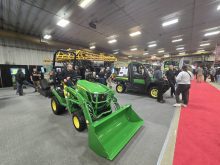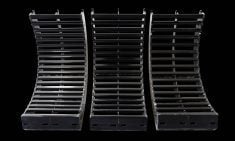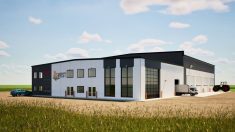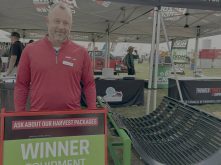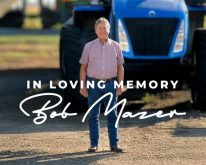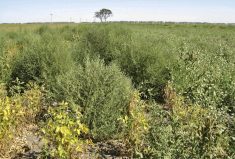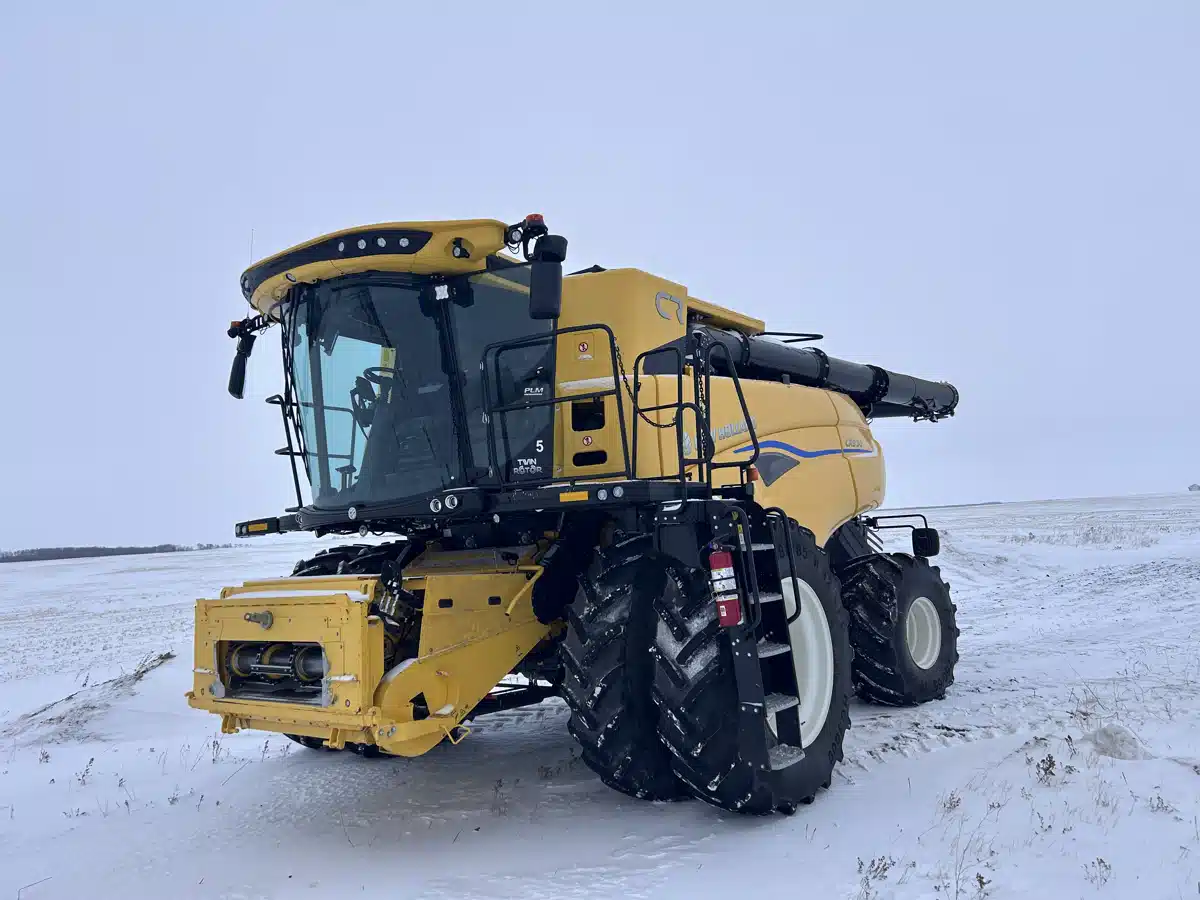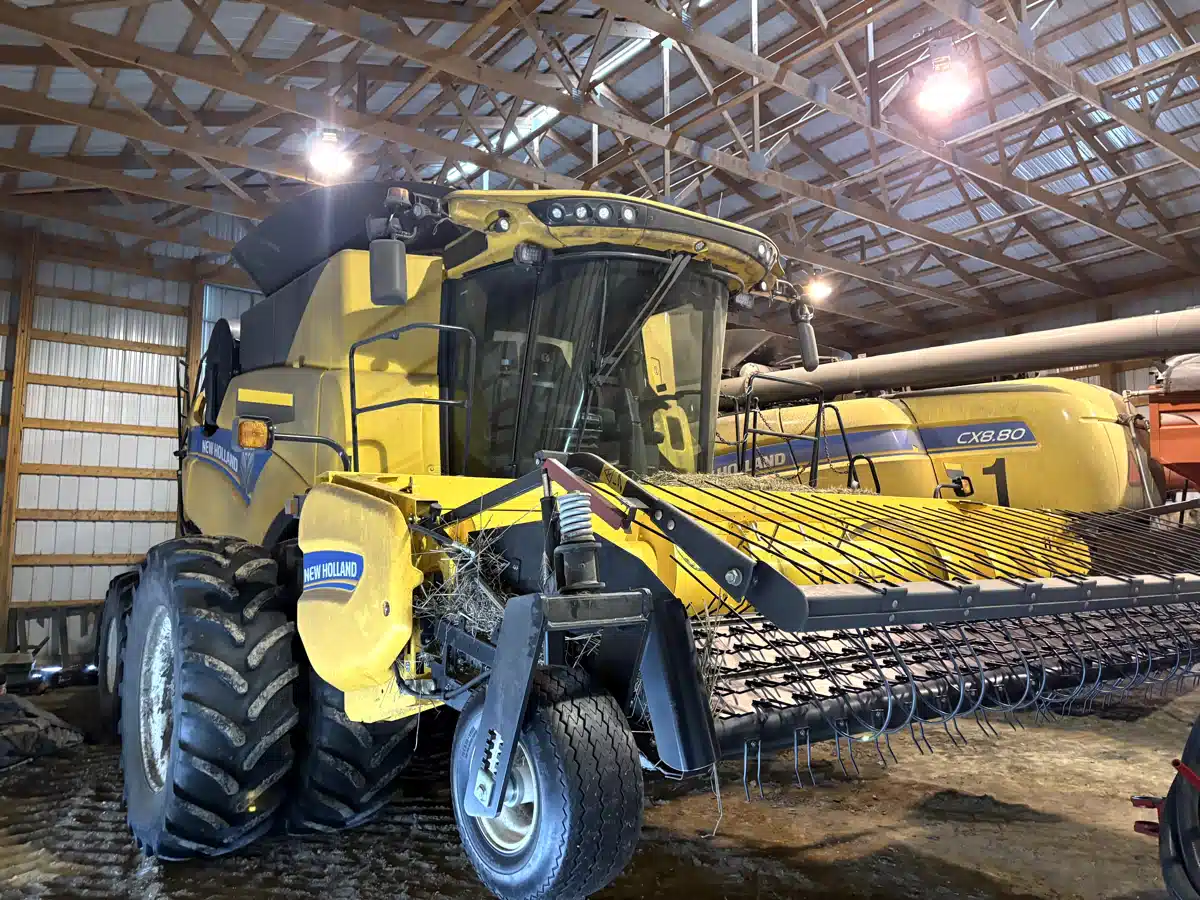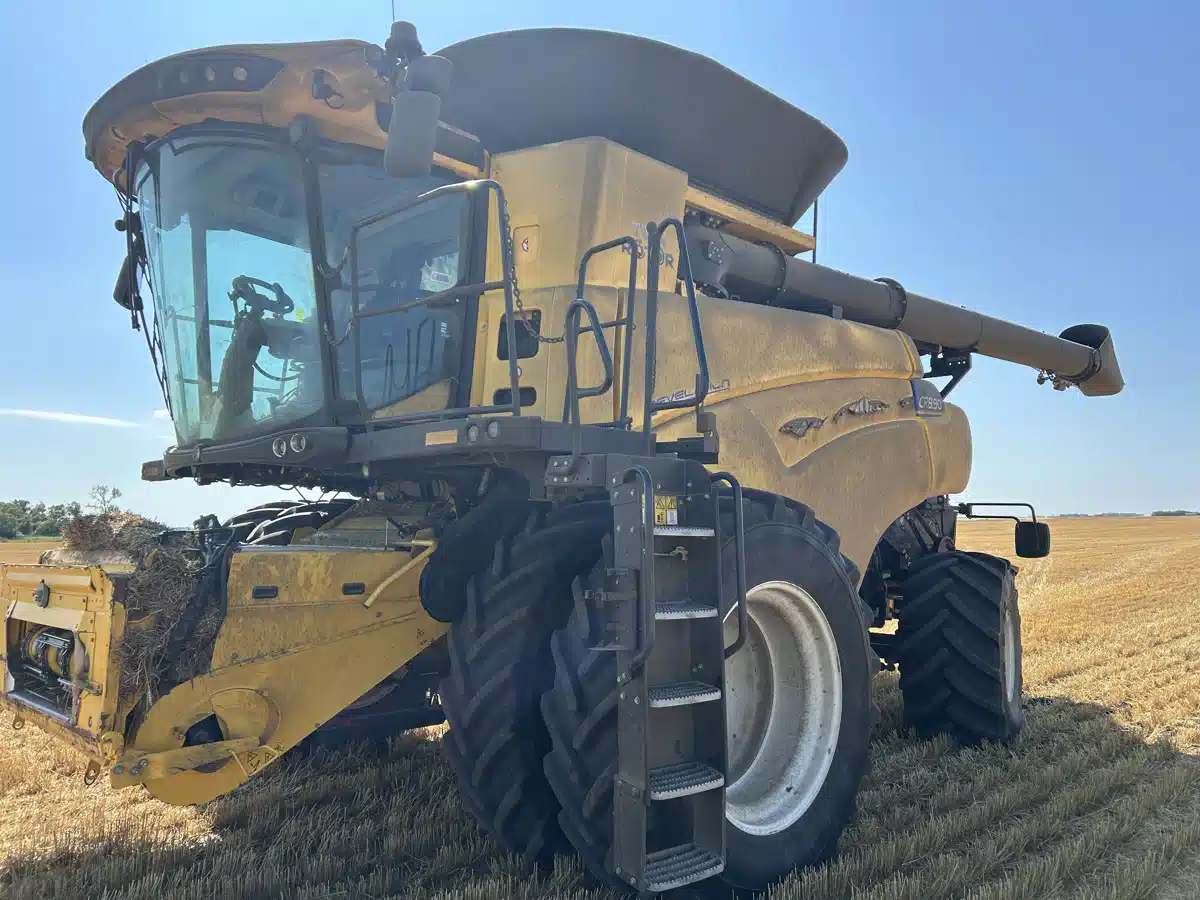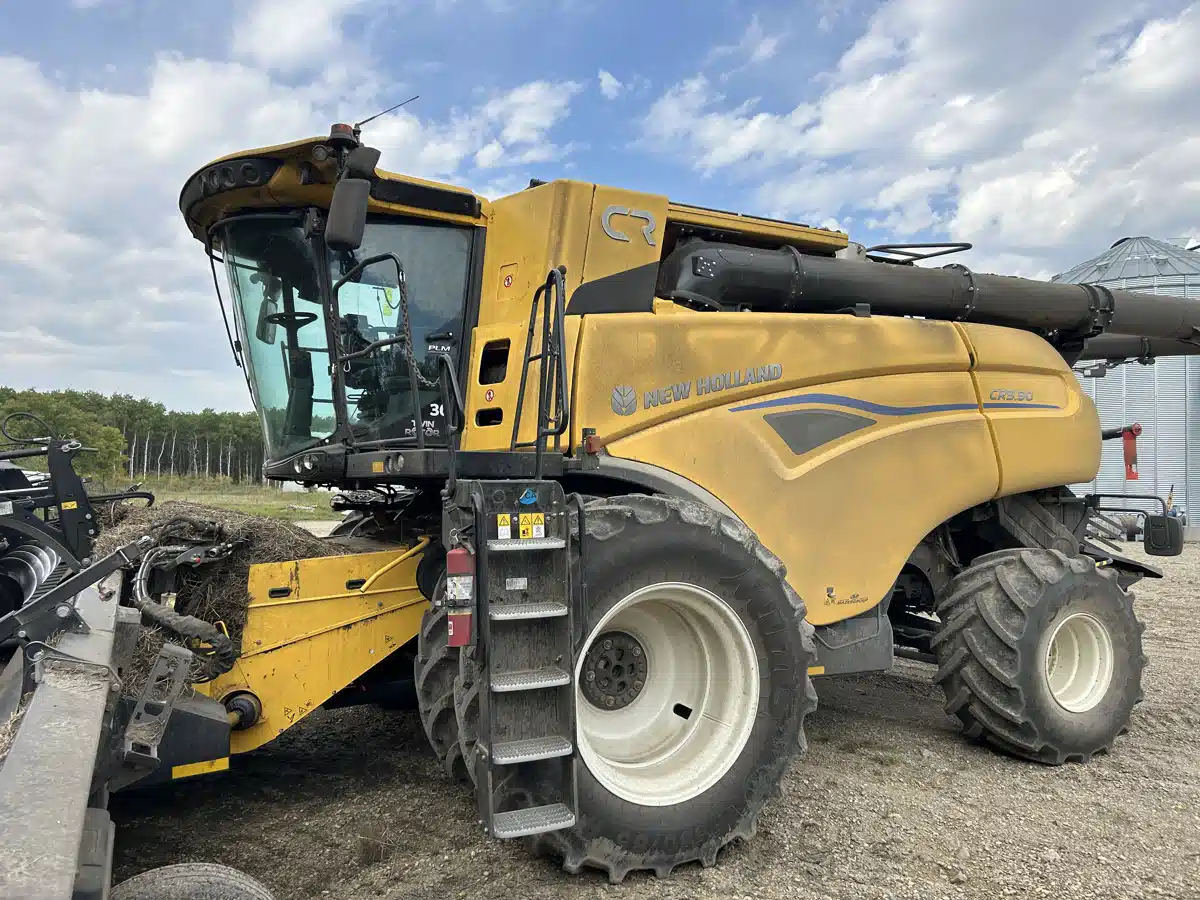Celebrating 50 years in any event – combines or otherwise – is an achievement worthy or recognition, and this is the case as New Holland celebrates the golden anniversary of its twin rotor design this year.
New Holland’s twin rotor design hit the machinery market in 1975 with its TR70 combine. A lot of change occurs over a period of five decades, and gauging by its exterior the TR70 was a rudimentary machine by modern standards. The combine’s twin rotor design was the first of its kind on the commercial market, allowing farmers to harvest quicker and handle grains more gently than conventional threshing cylinders in use before that time. The TR70 was in production up until 1978.
We spoke with J Cole Sanford, cash crop specialist with New Holland, at the National Farm Machinery Show in Louisville, Kentucky in February. Sanford was yet to be born when the TR70 arrived on the scene, but he has memories of the model in later years.
Read Also
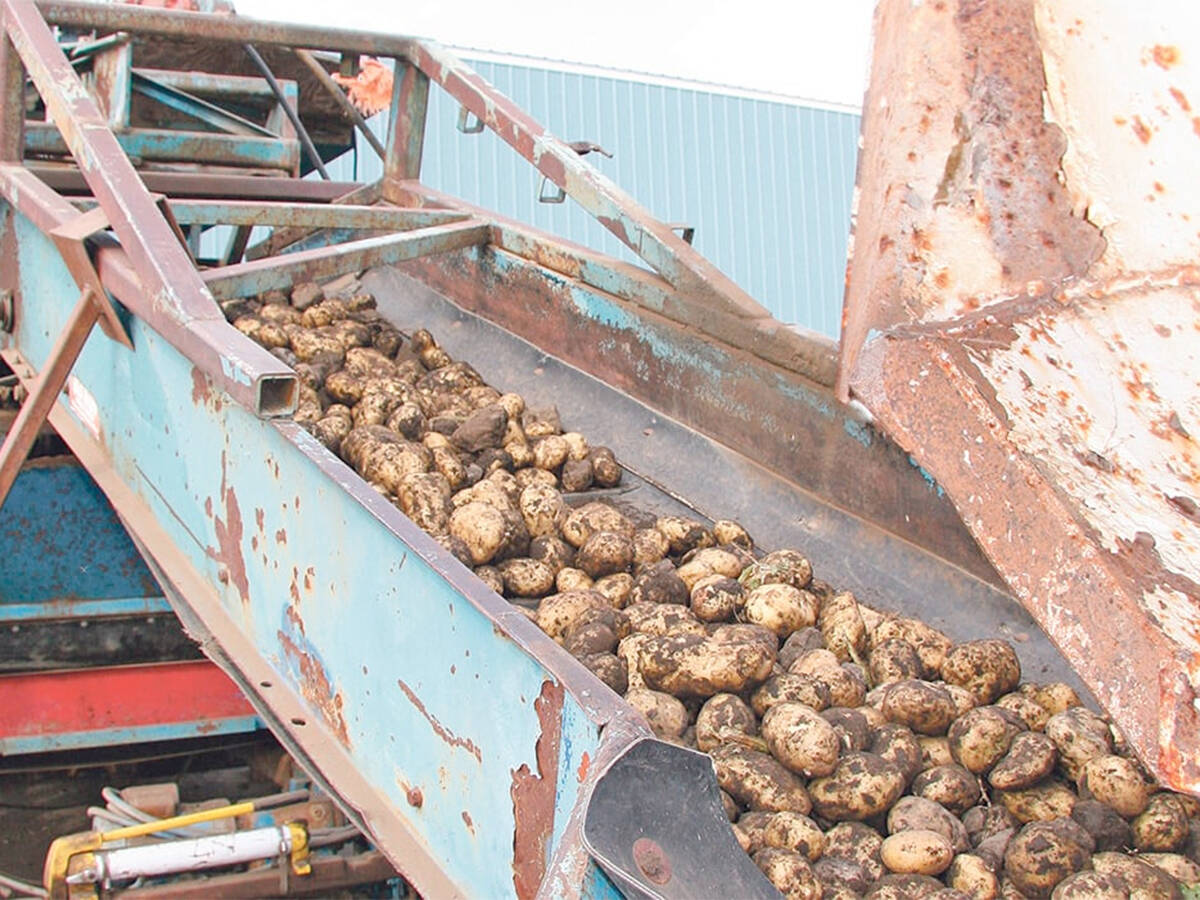
Potato growers beware new PVY strains
Newer strains of potato virus Y (PVY) are creating headaches for potato farms in Eastern Canada, and Manitoba farmers should pay attention
“My dad worked at a dealership and also helped on a farm that used exclusively New Holland equipment,” says Sanford. “So I grew up in the cab of those early TR machines and I remember it well.”
Powering the TR and CR
If you stop for a moment and think about how automobile and telephone technology has changed over the past five decades, you can begin to appreciate the rapid growth in combine technology.
In 1975, you had the option of a Sperry-New Holland 962 corn head to harvest between 4-6 rows at a time on the TR70. Fast forward 50 years and New Holland’s CR10 combine, fitted with its 9200 Series of corn headers, can harvest as many as 18 rows in one pass.

That level of productivity requires a significant boost in power. The TR70 in its day had a 145 hp Ford engine (with the option of a 166 hp Cat powerplant) and the modern-day CR10 has a 635 hp Cursor 13 engine. Rotor diameters alone increased by seven inches and the difference in grain tank capacities between the two is 153 bushels in their standard configurations.
As farms have grown, so has the need for larger and more efficient equipment and technology to get each year’s harvest in the bin. But as you’ll see in the graphic that boost in efficiency also comes with a price tag.
Stepping back in time
When it comes to the operating environment of the TR70, creature comforts were pretty spartan by today’s standards. Operators were protected from the elements by a glass-enclosed cab that had a simple steering wheel (albeit with power steering), a single seat and options such as an air conditioner, a heater and an AM/FM radio.

Keeping that in mind, sitting inside a CR10 with its two IntelliView monitors – which display views of the grain tank and auger via three on-board cameras – IntelliSense and IntelliSteer precision technology systems, multizone climate control, luxury steering wheel, and a premium seat with a headrest, it can almost feel like you’re claiming the captain’s chair on the bridge of the Starship Enterprise. Oh, and not to be outdone, the CR10 has a Bluetooth-enabled radio that can connect to your smartphone as well.
All in all, it’s easy to see how 50 years of combine design has paid off for farmers in terms of comfort and productivity.





